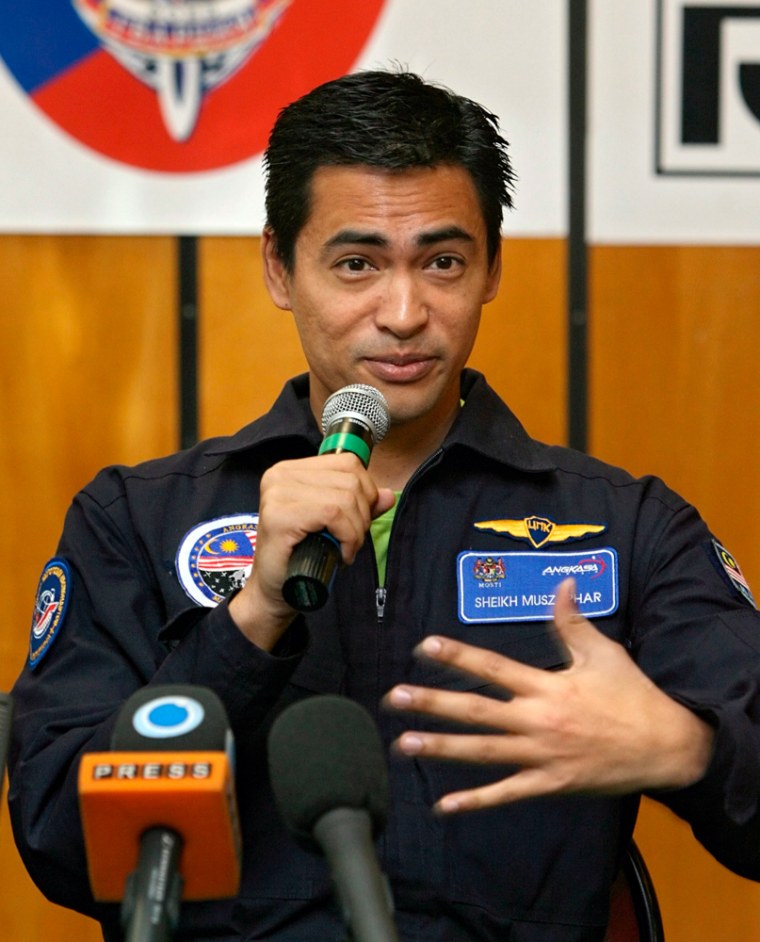Malaysia's first man in space said on Tuesday the gravitational force on his return to earth was "like a big elephant on my chest" after a computer glitch made his re-entry steeper than planned.
Dr. Sheikh Muszaphar Shukor, an orthopedic surgeon and university lecturer from Kuala Lumpur, touched down in Kazakhstan with two Russian cosmonauts on Sunday, about 200 km (120 miles) off course after a so-called "ballistic" descent.
That meant the capsule followed a much steeper and shorter trajectory to earth, causing more spin, a bumpier ride and much greater gravitational strain on its occupants.
Shukor was returning to Earth from an 11-day trip to the International Space Station (ISS), accompanied by outgoing station commander Fyodor Yurichkin and flight engineer Oleg Kotov, who both completed 197 days in space.
"It felt like a big elephant on my chest, I just couldn't breathe," said Shukor at his first news conference since returning from space.
Russian space agency officials said the ballistic descent was unplanned but not an emergency, and that all three men were in good health following preliminary medical tests.
Shukor said his year-long training course had prepared him for such an event, and the eight seconds of physical discomfort were far outweighed by the joy of his space flight.
"I got a chance to see Malaysia from space, and it was the most beautiful thing I've seen in my life," said Shukor at Russia's once top-secret space training base east of Moscow, where cosmonauts are debriefed after flights.
Shukor was selected from among 11,000 Malaysian candidates to fly aboard the ISS in a deal his government arranged as part of a $1 billion purchase of Russian fighter jets.
"I felt as though I was born for space," said Shukor, who will return to Malaysia to promote education in science and engineering.
"I've been living in a dream, a dream of all Malaysian people. I hope to be the eyes and ears of all Malaysian people and share my experiences," he said.
He was the first Muslim to fly into space during the fasting month of Ramadan, the holiest period of the Islamic calendar, when practicing Muslims abstain from food and drink during daylight hours.
Shukor said he was able to pray on board the ISS, which orbits Earth 16 times every twenty-four hours, but did not say whether he observed other Ramadan customs.
"It doesn't matter where you are, whether you are in space or on Earth, you have to do your responsibilities as a Muslim," he said.
